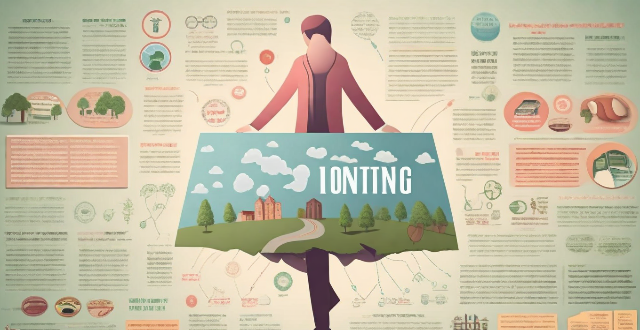Disease Long

Can exercise reverse heart disease ?
Heart disease is a major cause of death worldwide, and it can be devastating to those affected. While there are many treatments available for heart disease, including medication and surgery, some people wonder if exercise can reverse the damage caused by heart disease. There is evidence that regular exercise can help prevent and manage heart disease by improving cardiovascular health, managing weight, lowering blood pressure, improving cholesterol levels, and reducing stress. However, there is no conclusive evidence that exercise can completely reverse heart disease. Despite this, there are still many benefits to regular exercise for heart health. If you have been diagnosed with heart disease or are at high risk for developing it, talk to your doctor about starting an exercise program. They can help you create an exercise plan that is safe and effective for your individual needs and goals.

How does predictive analytics help in disease prevention and management within the healthcare system ?
Predictive analytics in healthcare can significantly improve disease prevention and management by identifying patterns and trends in patient data. It offers benefits such as early intervention, personalized treatment plans, enhanced operational efficiency, and informed decision-making. Applications include disease surveillance, chronic disease management, and patient care optimization. However, challenges like data privacy, quality, and the need for skilled data analysts must be addressed to fully realize its potential.

How do vaccines work to protect against disease ?
Vaccines protect against disease by introducing a small amount of the pathogen into the body, triggering the immune system to produce antibodies that protect against future infections with the same pathogen. There are several types of vaccines with unique mechanisms of action and effectiveness against specific pathogens. The development of vaccines is a complex process requiring extensive testing and research, but they have been shown to be highly effective at preventing serious diseases.

What are some good gluten-free food options for people with celiac disease ?
Celiac disease is an autoimmune disorder that damages the small intestine and requires a strict gluten-free diet. Good gluten-free food options for people with celiac disease include fruits and vegetables, meat and fish, gluten-free grains and starches like quinoa and brown rice, dairy products, nuts and seeds, gluten-free flours and baking mixes, and gluten-free snacks and beverages like popcorn and juices.

How does consistent physical activity affect the immune system in relation to chronic disease prevention ?
The article discusses the impact of consistent physical activity on the immune system and its role in preventing chronic diseases. It explains that regular exercise can increase the number and activity of immune cells, reduce inflammation, and improve overall health. The article also provides recommendations for exercise and emphasizes the importance of incorporating physical activity into one's lifestyle to prevent chronic diseases and improve well-being.

How does climate change influence the distribution and survival of disease-carrying organisms ?
This text discusses the influence of climate change on the distribution and survival of disease-carrying organisms, highlighting how altered habitats, changes in reproduction and life cycle, and altered behavior and transmission rates contribute to the spread of diseases. It further provides examples of specific disease-carrying organisms affected by climate change and suggests mitigation strategies such as surveillance, control measures, public health education, and research to address these challenges.

What are the long-term effects of air pollution on our health ?
The long-term effects of air pollution on health are wide-ranging and severe, affecting individuals and entire communities. Respiratory diseases, cardiovascular diseases, neurological disorders, reproductive health problems, and other health issues have all been linked to exposure to polluted air. It is essential to address air pollution as a public health issue to protect the health and well-being of people worldwide.

Does high-intensity interval training (HIIT) have specific benefits for chronic disease prevention ?
High-intensity interval training (HIIT) offers numerous benefits for chronic disease prevention, including improved cardiovascular health, enhanced glucose control, reduced inflammation, increased muscle mass and strength, and improved mental health outcomes. To incorporate HIIT into a healthy lifestyle, start slowly, choose the right exercises, include other forms of exercise, and consult with a health professional.

How much exercise is needed per week to prevent chronic disease ?
Chronic diseases are a major cause of death and disability worldwide. Regular physical activity can help reduce the risk of developing chronic diseases such as heart disease, diabetes, and some types of cancer. According to the World Health Organization (WHO), adults should aim to do at least 150 minutes of moderate-intensity aerobic exercise or 75 minutes of vigorous-intensity aerobic exercise each week, along with muscle-strengthening activities at least twice a week. However, the amount of exercise needed to prevent chronic diseases may vary depending on individual factors such as age, sex, body weight, and overall health status. It's recommended that people try to incorporate at least 30 minutes of moderate-intensity aerobic exercise into their daily routine, along with strength training exercises whenever possible.

What are the long-term implications of neglecting climate adaptation efforts ?
Neglecting climate adaptation efforts can have far-reaching and long-lasting implications for our planet, its ecosystems, and human societies. These implications are multifaceted and interconnected, affecting various aspects of life on Earth. Below, we will explore some of the key long-term implications in detail: ### **Environmental Consequences** #### *Loss of Biodiversity* - **Habitat Destruction**: Rising temperatures and changing weather patterns can disrupt habitats, leading to a decline in biodiversity. - **Species Extinction**: Some species may not be able to adapt quickly enough to the changing conditions, resulting in extinction. #### *Ocean Acidification* - **Marine Ecosystems**: Increased carbon dioxide levels in the atmosphere lead to ocean acidification, which harms marine life, especially shellfish and coral reefs. ### **Economic Impacts** #### *Agriculture and Food Security* - **Reduced Crop Yields**: Changes in temperature and precipitation patterns can negatively affect crop yields, leading to food scarcity and price hikes. - **Livestock Production**: Heat stress and changes in feed quality can impact livestock production, further exacerbating food security issues. #### *Infrastructure Damage* - **Coastal Erosion**: Rising sea levels can cause coastal erosion, damaging infrastructure such as roads, buildings, and energy facilities. - **Extreme Weather Events**: More frequent and severe weather events like hurricanes, floods, and droughts can cause significant damage to infrastructure and lead to costly repairs. ### **Social and Health Impacts** #### *Displacement and Migration* - **Climate Refugees**: As living conditions deteriorate due to climate change, people may be forced to leave their homes, leading to mass migration and potential conflicts over resources. - **Urbanization**: People may move to cities seeking better living conditions, which could strain urban infrastructure and services. #### *Health Risks* - **Heat-related Illnesses**: Higher temperatures can lead to heat stroke, dehydration, and other heat-related illnesses. - **Spread of Diseases**: Warmer temperatures can expand the range of disease-carrying organisms like mosquitoes and ticks, increasing the risk of diseases like malaria, dengue fever, and Lyme disease. ### **Summary** Neglecting climate adaptation efforts has far-reaching consequences that extend beyond environmental degradation to include economic instability, social unrest, and public health risks. It is crucial for governments, businesses, and individuals to take proactive steps towards climate adaptation to mitigate these long-term implications and ensure a sustainable future for all.

What are the long-term consequences of untreated mental health conditions in women ?
The text discusses the severe and long-lasting consequences of untreated mental health conditions in women, which can affect their overall well-being, relationships, and quality of life. These consequences can be physical, emotional, and social, and they often compound over time. The most significant long-term effects include increased risk of chronic diseases, compromised immune system, sleep disorders, escalation of symptoms, self-medication, suicidal thoughts and behaviors, strained interpersonal relationships, workplace challenges, financial difficulties, reduced life satisfaction, limited participation in activities, and poor self-esteem. It is essential to recognize that these conditions do not improve over time without intervention and instead worsen, causing a ripple effect that touches every aspect of a woman's life. Early detection and treatment are crucial for managing mental health disorders effectively and preventing these long-term consequences. Seeking support from professionals such as therapists, psychiatrists, or counselors can provide the necessary tools and resources to address mental health concerns and improve overall well-being.

Can eating organic food prevent diseases ?
Eating organic food may offer some potential benefits for disease prevention, such as reduced exposure to pesticides and chemicals, higher antioxidant levels, and better nutrient content. However, the overall evidence supporting its ability to prevent diseases is limited, and other factors influencing disease risk should also be considered when making dietary choices. It is important to prioritize a balanced and varied diet rich in fruits, vegetables, whole grains, lean proteins, and healthy fats while minimizing intake of processed foods and sugary beverages.

What is the importance of long-term climate data analysis ?
Long-term climate data analysis is crucial for understanding the Earth's climate system and its changes over time. It provides valuable insights into past climate patterns and trends, which are critical for predicting future climate conditions and developing effective adaptation strategies. By continuing to collect and analyze long-term climate data, we can better prepare ourselves for the challenges posed by a changing climate and work towards a sustainable future.

Can using a health management app reduce the risk of chronic diseases such as diabetes or heart disease ?
Health management apps can help reduce the risk of chronic diseases by monitoring health metrics, providing insights, promoting healthy habits, and issuing reminders. However, over-reliance, inaccuracies, and privacy concerns are downsides to consider. While beneficial, these apps should not replace professional medical advice.

Can physical activity reduce the risk of heart disease ?
Regular physical activity can significantly reduce the risk of heart disease by improving blood circulation, strengthening heart muscles, and reducing major risk factors such as high blood pressure, high cholesterol, and diabetes. Recommended types of exercise include aerobic activities and strength training. Following guidelines from health organizations like the WHO can help maintain cardiovascular health.

How do I invest my money wisely for long-term growth ?
Investing wisely for long-term growth involves setting financial goals, creating a diversified portfolio, considering risk tolerance, investing for the long-term, and monitoring investments regularly.

How accurate are long-term climate predictions ?
Long-term climate predictions are essential for understanding potential future changes in the environment, but their accuracy is often questioned due to the complexity of the climate system. Factors that influence the accuracy of these predictions include uncertainty in emission scenarios, natural variability, and model limitations. However, advancements in climate modeling, such as higher-resolution models, ensemble modeling, and data assimilation techniques, have significantly improved our ability to make accurate predictions about future climate changes. By continuing to invest in research and development, we can further enhance the precision and reliability of long-term climate predictions, providing critical information for decision-makers and the public alike.

What are some long-term saving strategies ?
Saving for the long term requires a disciplined approach and a solid plan. Here are some strategies to help you save effectively over the years: 1. Set clear financial goals: short-term, medium-term, and long-term. 2. Create a budget and stick to it by tracking expenses, cutting unnecessary costs, and automating savings. 3. Build an emergency fund that is easily accessible and covers at least 3-6 months' worth of living expenses. 4. Take advantage of employer matches and maximize contributions to retirement accounts like 401(k)s and IRAs. 5. Invest wisely with diversification, risk management, and a long-term perspective. 6. Manage debt by paying off high-interest debts first and considering refinancing options. 7. Regularly review and adjust your financial plan, adapting to life changes as needed. 8. Plan for taxes by choosing tax-efficient investments and being strategic about withdrawals and contributions. 9. Consider estate planning with wills, trusts, and life insurance to protect your family's financial wellbeing. 10. Continuously learn and seek advice from financial professionals when needed. By consistently implementing these strategies, you can build a strong financial foundation for your future.